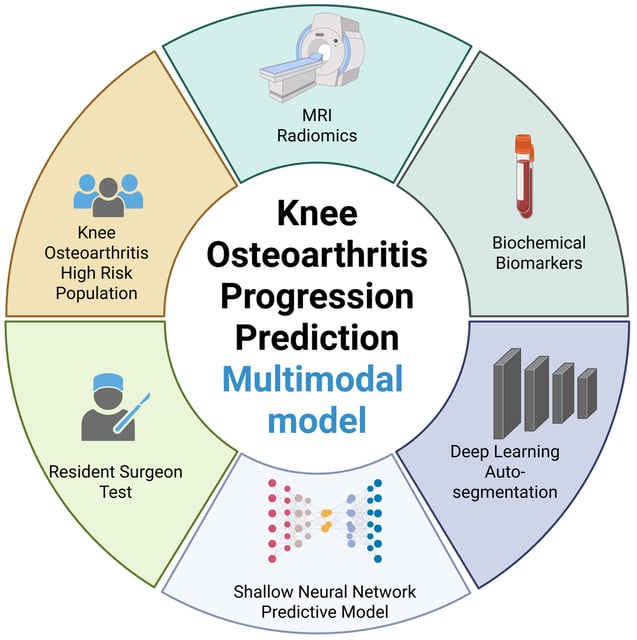Overview
- The neural-network model, LBTRBC-M, integrates longitudinal MRI radiomics, biochemical markers, and clinical variables to predict near-term knee osteoarthritis worsening.
- Researchers trained and tested the model on a split of NIH Osteoarthritis Biomarkers Consortium data covering 594 people and 1,753 knee MRIs over two years.
- Internal testing assessed four outcomes over two years: worsening pain alone, pain with joint-space narrowing, joint-space narrowing alone, or no worsening.
- Performance reached up to 74% accuracy, and assistance from the model increased resident physicians’ accuracy from 46.9% to 65.4% with sensitivity rising to 68% and specificity to 80%.
- The PLOS Medicine study is observational with no external validation; authors call for further refinement and disclose funding from Chinese science programs and competing interests for an author.
